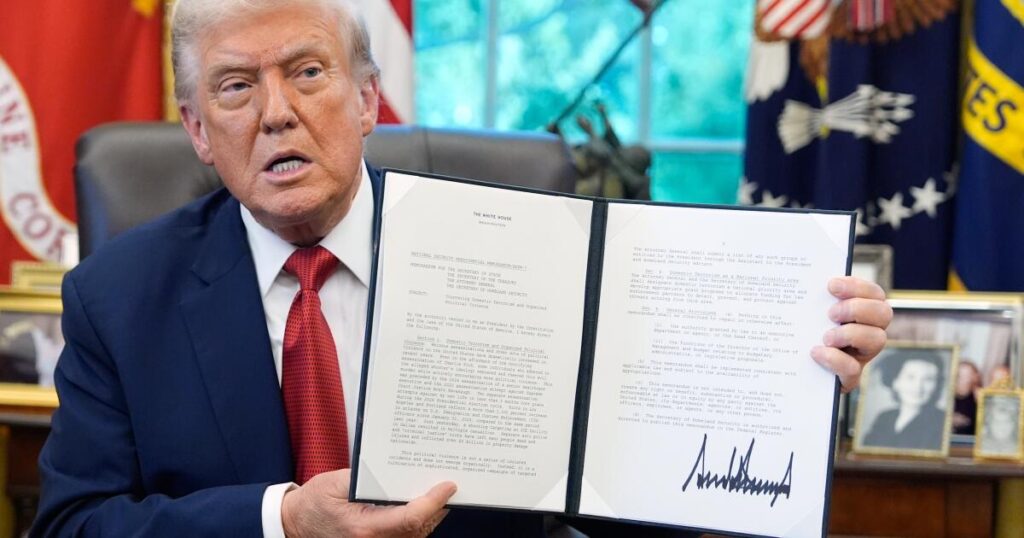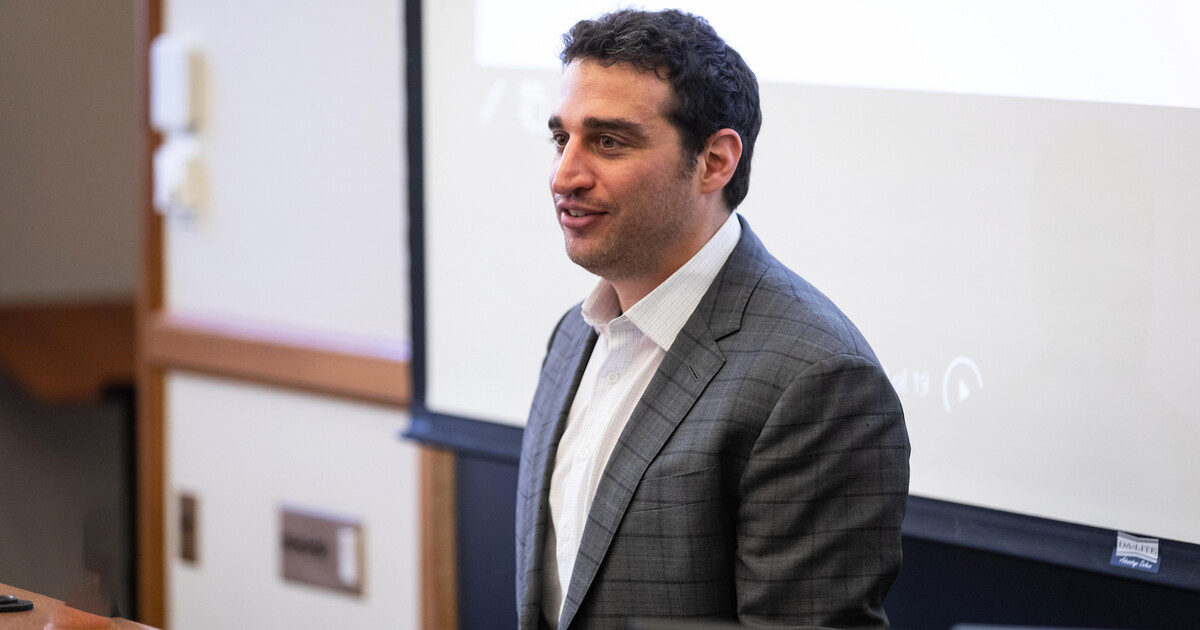
UPDATE: New reports raise urgent concerns over former President Donald Trump’s use of emergency powers, drawing parallels to historical figures like Julius Caesar. Critics argue that Trump’s actions may set dangerous precedents, threatening the foundations of American democracy.
Just announced: Trump’s recent decisions to invoke the International Emergency Economic Powers Act (IEEPA) have sparked intense debate about the limits of presidential authority. The former president claims these measures are necessary to address what he labels “national emergencies,” specifically regarding trade imbalances.
This matters RIGHT NOW because the implications of unchecked presidential power could reshape the balance of governance in the United States. As Trump pushes for increased tariffs on Canada, citing a pro-free trade ad as justification, experts warn about the potential for abuse of emergency powers.
Authorities confirm that Trump’s administration has utilized the IEEPA to impose tariffs without proper oversight, raising alarms among political analysts. For instance, Trump recently announced a 10% tariff increase on imports from Canada, despite the U.S. maintaining a trade surplus with its northern neighbor.
The context is critical: Historically, emergency powers were meant to be temporary solutions to crises, but the fear is that they can devolve into permanent authority if left unchecked. The founders of the United States, including Benjamin Franklin, warned against the dangers of concentrated power, emphasizing that republics fail when leaders exploit emergencies.
In the past, presidents like Joe Biden have also been criticized for declaring emergencies to gain authority, such as his attempt to cancel $430 billion in student loans during the COVID-19 pandemic. These actions highlight a troubling trend of leveraging crises to expand executive power.
Trump’s legal team argues that denying the president this power would pose significant risks, a claim reminiscent of Caesarist tactics: the notion that unchecked power is needed for public safety and stability. However, experts assert that this mindset undermines democratic principles.
What happens next? As Congress reviews the IEEPA every six months, the potential for significant legislative action looms. With Congressional Republicans reportedly altering rules that limit their ability to check presidential authority, observers are closely watching how these dynamics will unfold.
This urgent situation demands attention as it could have lasting effects on American governance and civil liberties. The public must remain vigilant, understanding that the real threat to democracy often arises not from overt tyranny, but from the willing surrender of power under the guise of crisis management.
As the conversation continues, the implications of Trump’s actions will be a crucial topic in upcoming political discussions. The question remains: How far will the boundaries of executive power stretch before they are reined in?
“Republics fail not so much because would-be Caesars seize power. They fail because cowards give it to them.” – Benjamin Franklin






